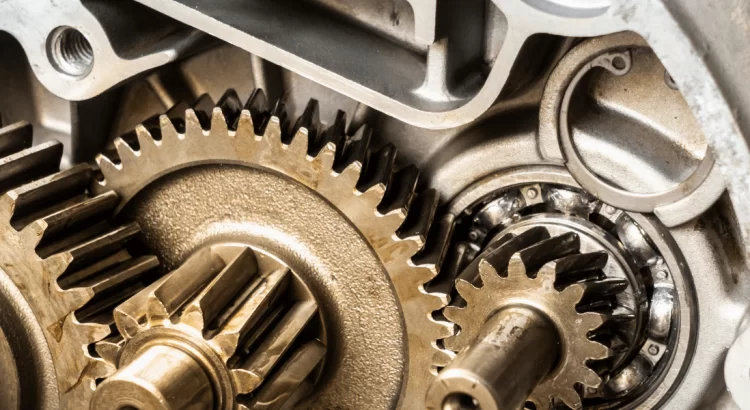Mobile:+86-311-808-126-83
Email:info@ydcastings.com
aluminum metal casting
Aluminum Metal Casting A Comprehensive Overview
Aluminum metal casting is a vital process utilized across various industries due to the metal's desirable properties, including lightweight, corrosion resistance, and excellent strength-to-weight ratios. The casting process involves pouring molten aluminum into a mold, allowing it to cool and solidify into the desired shape. This method is widely favored for creating complex geometries and large parts, enabling manufacturers to meet diverse needs efficiently.
Types of Aluminum Casting
There are several methods of aluminum casting, each suited for specific applications and requirements. The most common techniques include
1. Sand Casting This traditional method uses sand to create molds, making it cost-effective for producing large parts. It is particularly suitable for low to medium production volumes and offers excellent flexibility in design.
2. Die Casting In die casting, molten aluminum is injected under high pressure into a reusable steel mold, or die. This method produces high-precision parts with excellent surface finishes and is ideal for mass production. It is commonly used for automotive components, consumer goods, and electronic housings.
3. Permanent Mold Casting This technique uses reusable metal molds, which provide better thermal conductivity and surface finish than sand molds. Permanent mold casting is often chosen for parts requiring dimensional stability and improved mechanical properties.
4. Investment Casting Also known as lost-wax casting, this technique involves creating a wax pattern that is coated with a ceramic shell. Once the shell is hardened and the wax is melted away, molten aluminum is poured into the cavity. Investment casting is suitable for intricate designs and is widely used in aerospace and medical applications.
Advantages of Aluminum Casting
Aluminum casting offers several benefits that make it an attractive option for manufacturers
aluminum metal casting

- Lightweight Aluminum is significantly lighter than many other metals, which is a crucial factor in industries such as aerospace and automotive, where reducing weight can enhance fuel efficiency.
- Corrosion Resistance Aluminum naturally forms a protective oxide layer when exposed to air, providing excellent resistance to corrosion. This property makes it ideal for outdoor applications and environments exposed to moisture.
- Versatile Properties The alloying capabilities of aluminum allow for the creation of materials that can be tailored for specific applications. Various aluminum alloys can be engineered to enhance characteristics such as strength, ductility, and machinability.
- Recyclability Aluminum casting supports sustainability efforts, as aluminum can be recycled multiple times without losing its properties. This quality not only reduces waste but also lowers energy consumption during production.
Challenges and Considerations
Despite its advantages, aluminum casting does face certain challenges. One significant issue is the development of casting defects, such as porosity, shrinkage, or inclusions, which can compromise the integrity of the final product. To mitigate these risks, manufacturers must implement strict quality control measures and utilize advanced technologies such as computer-aided design (CAD) and simulations during the design phase.
Moreover, the choice of alloy plays a critical role in the casting process. Different aluminum alloys exhibit varying melting points and mechanical properties, necessitating careful selection to match the specific requirements of the application. It is also essential to ensure that the casting process aligns with the mechanical and thermal treatment procedures to optimize the performance of the end product.
Conclusion
Aluminum metal casting is an essential manufacturing process that significantly impacts various industries, from automotive to aerospace and consumer goods. With its lightweight, corrosion-resistant, and customizable properties, aluminum casting continues to evolve, showcasing advances in technology and sustainability. As manufacturers seek more efficient and environmentally friendly solutions, aluminum casting will undoubtedly remain a cornerstone in the production of high-quality metal components. Embracing new methodologies and innovations within this field will help meet the growing demands and challenges of modern manufacturing.
-
What Makes Stainless Steel Pump Casting Essential for Modern Industries?NewsJul.14,2025
-
Revolutionize Your Engine Maintenance with Premium Aluminum and Cast Iron ComponentsNewsJul.14,2025
-
Precision Flow Engineering Starts with the Right Pump ComponentsNewsJul.14,2025
-
Maximize Efficiency: Explore Reliable Containment and Crop SolutionsNewsJul.14,2025
-
Discover Superior Performance with Advanced Turbo ComponentsNewsJul.14,2025
-
Boost Fluid Dynamics with Precision-Engineered Pump ComponentsNewsJul.14,2025











